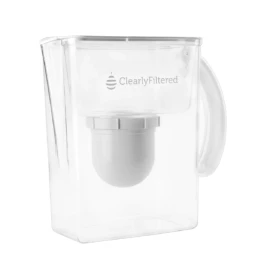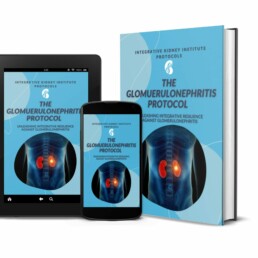Managing diabetes in patients with chronic kidney disease (CKD) can be challenging, particularly when assessing glucose control. Hemoglobin A1c (HbA1c) testing is the gold standard for monitoring long-term glycemic control in diabetes. However, there are several limitations to the use of HbA1c in CKD. In this blog, I will explore the accuracy of hemoglobin A1c in CKD and discuss alternative tests that may provide more reliable results.
By Majd Isreb, MD, FACP, FASN, IFMCP
What is hemoglobin A1c?
Hemoglobin is a protein found in red blood cells that carries oxygen to the body’s tissues. There are different types of hemoglobin, such as A and A2, etc. Hemoglobin A1c (HbA1c) is a form of hemoglobin formed by the non-enzymatic glycation of hemoglobin A with glucose. In essence, when glucose (blood sugar) attaches to hemoglobin, it forms a molecule called glycated hemoglobin, or HbA1c.
HbA1c reflects the average blood glucose levels over the past 2-3 months and is an important tool for managing diabetes. Unlike other blood glucose tests, HbA1c does not require fasting, and the test can be performed at any time of the day.
Moreover, HbA1c provides an integrated measure of blood glucose levels over time, which can help identify long-term glycemic control and the risk of diabetes-related complications.
HbA1c targets
HbA1c testing has become the preferred method for monitoring blood glucose levels in people with diabetes. The American Diabetes Association (ADA) recommends that HbA1c be measured at least twice a year in people with diabetes who are meeting treatment goals and quarterly in people whose therapy has changed or who are not meeting glycemic goals. The target HbA1c level for most adults with diabetes is less than 7%.
Accuracy of hemoglobin A1c in CKD
Challenges of hemoglobin A1c testing in CKD patients
The formation of HbA1c is mainly dependent on the interaction between blood glucose and hemoglobin inside the red blood cells. So, you can see that any factors affecting the red blood cells, hemoglobin, and the glycation process can influence HbA1c. The following factors were documented to affect HbA1c besides blood glucose levels:
- Red blood cell production and lifespan
- The presence of altered hemoglobin
- Interference with the glycation process
- Interference with the assay used
Changes in red blood cells production and lifespan
A Decreased production of red blood cells (RBCs) causes more circulating aged RBCs, for example. This increases hemoglobin contact time with glucose and artificially raises HbA1c. In fact, Iron deficiency anemia was documented to cause an increase in HbA1c of up to 2%. However, this effect was reversed with iron supplementation.
Shortened RBCs lifespan, as it occurs in acute blood loss or enlarged spleen or hemolysis, can decrease hemoglobin exposure time to glucose, causing falsely lowered HbA1c.
In CKD, there are changes in RBCs’ lifespan and production. For example, RBC lifespan may be shortened due to the uremic environment, which causes erroneously low HbA1c.
On the other hand, in anemia of chronic kidney disease, there is a decreased production of RBCs which increases the age of circulating RBCs and lengthens exposure to glucose. This will cause artificially elevated HbA1c.
Alteration in hemoglobin
Different assays can give different results in patients who have hemoglobin variants such as hemoglobin S and hemoglobin C. Specialized assays can be used to make these alterations in hemoglobin no longer relevant when measuring HbA1c.
Interference with the glycation process
Interference with the glycation process can lead to artificial changes in HbA1c that are independent of glycemic control. Increased acidity inside the RBCs was found to affect glycation and decrease HbA1c. Increased lipid peroxidation of hemoglobin in CKD has been found to increase its glycation, leading to erroneously higher HbA1c.
Chronic ingestion of aspirin, alcohol, and high doses of antioxidants (like vitamins C and E) can interfere with glycation and falsely lower HbA1c.
Interference with the assay
Finally, it has been reported that high triglyceride, high bilirubin, and opiates can interfere with HbA1c measurements. In CKD, there is carbamylation of hemoglobin due to uremia. Carbamylated hemoglobin also interferes with HbA1c assays causing falsely elevated HbA1c.
Clinical implications
The inaccuracy of HbA1c testing in CKD patients has several clinical implications. Here are some key considerations:
- Misinterpretation of glycemic control: HbA1c levels that are lower than expected in CKD patients may lead to misinterpretation of glycemic control, potentially resulting in under-treatment and increased risk of diabetes-related complications.
- Difficulty in diagnosing diabetes: HbA1c may be less reliable in diagnosing diabetes in CKD patients. Therefore, additional tests such as fasting plasma glucose or oral glucose tolerance test may be needed to confirm the diagnosis.
- Treatment decisions: Treatment based on HbA1c levels alone may not be appropriate in CKD patients.
- Need for an individualized approach: Due to the complex interplay between CKD and HbA1c, a one-size-fits-all approach may not be appropriate for managing diabetes in CKD patients. Instead, an individualized approach, considering other factors such as anemia, iron deficiency, and inflammation, may be needed to assess glycemic control accurately.
Join us to end the kidney disease epidemic and receive the FREE Report “5 Pitfalls to Avoid When Caring for Kidney Patients”
Alternative tests for HbA1c in CKD
While HbA1c is the most commonly used marker of glycemic control, its accuracy in CKD patients can be affected by several factors. Therefore, alternative markers of glycemic control may be needed in CKD patients. Here are some markers that may be more reliable in assessing glycemic control in CKD patients:
- Glycated albumin (GA): GA is a marker of short-term glycemic control that reflects the average glucose levels over the preceding 2-3 weeks. GA is not affected by erythrocyte turnover and may be more reliable than HbA1c in CKD patients. Several studies have shown that GA is more accurate than HbA1c in assessing glycemic control in CKD patients. The reference range of GA in Americans with normal glucose tolerance was determined to be 9–15.8%.
- Fructosamine: Fructosamine is another marker of short-term glycemic control that reflects the average glucose levels over the preceding 2-3 weeks. Like GA, fructosamine is not affected by erythrocyte turnover and may be more reliable than HbA1c in CKD patients. The reference range for fructosamine in non-diabetic individuals is 200 to 285 micromol/L. However, there is a lack of standardization across different fructosamine assays.
- Continuous glucose monitoring (CGM): CGM is a technique that provides real-time glucose measurements using a sensor placed under the skin. CGM can provide a more detailed assessment of glycemic control than HbA1c and may be particularly useful in CKD patients with fluctuating glucose levels.
- Self-monitoring of blood glucose (SMBG): SMBG involves regularly measuring blood glucose levels using a glucometer. SMBG may be particularly useful in CKD patients who cannot qualify to get CGM.
The bottom line
Accurate assessment of glycemic control is critical in the management of diabetes in CKD patients. Unfortunately, HbA1c is not a reliable test for glycemic control in this population. An individualized approach, taking into account other factors that may affect HbA1c levels, may be necessary to ensure optimal management of diabetes in CKD patients. Alternative markers of glycemic control should be considered when appropriate.







